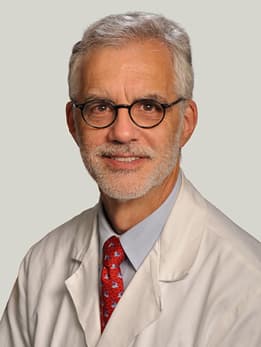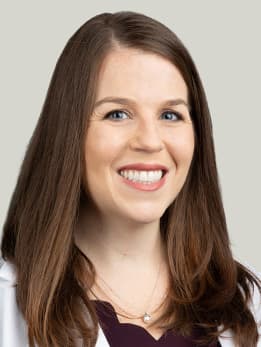Alzheimer's Disease and Dementia
The University of Chicago Medicine Center for Comprehensive Care and Research on Memory Disorders, also known as the Memory Center, provides specialized, compassionate care for the most challenging memory problems.
Our highly trained team of neurologists, geriatricians, psychiatrists, neuropsychologists, social workers and nurses evaluates each patient to develop an accurate diagnosis and comprehensive treatment plan. We provide primary care services and second opinions for patients with memory problems.
Our dedicated team members work closely with families and referring physicians to help guide the patient’s treatment over the long term. We can also assess and manage behavioral and psychiatric problems that often accompany memory disorders.
Dementia is a progressive deterioration of intellectual abilities that is significant enough to interfere with the social and occupational functioning of the individual.
Dementia is NOT a normal part of aging regardless of the age of the individual.
Early Warning Signs
- A change in mood or behavior
- A change in personality
- Constantly misplacing things
- Difficulty performing familiar tasks, such as cooking, driving, or paying bills on time
- Disorientation to time or place, including getting lost
- Loss of initiative
- Memory loss that affects job or lifestyle
- Problems with language, such as forgetting common words
- Poor or decreased judgment
These symptoms may indicate a memory disorder or dementia such as Alzheimer's disease, the most common type of dementia.
Symptoms are usually mild in the early stage of the disease, allowing most individuals to continue to do simple daily routines. Many are aware of the changes that are taking place, including difficulty with many of the symptoms mentioned above.
You may not be able to identify someone with Alzheimer's disease by appearance.
Many individuals with mild and moderate cognitive impairment seem as alert and physically fit as anyone their age. Individuals may also maintain their social skills or behave in a socially appropriate manner in familiar settings. In addition, some people may hide or deny their symptoms. These factors make identification of a person with Alzheimer's disease more difficult.
Because the disease progresses at different rates in individuals, symptoms and behaviors vary.
Understanding Memory Loss and Changes in Behavior
People with Alzheimer's disease share certain cognitive and behavioral characteristics.
Memory Loss
In Alzheimer's disease, recent memories are lost first, while distant ones are often retained.
The affected individual may not remember his or her name, phone number, address or caregiver. However, he or she may easily recall things that were learned decades ago.
Wandering
People with Alzheimer's are prone to wander. They can become lost (even in familiar settings) and leave a safe environment.
Wandering can happen anytime or anywhere, and can be life-threatening for the individual. The Alzheimer's Association's Safe Return Program assists in the return of individuals with Alzheimer's who may wander and become lost. Click here for the Safe Return Program.
Changes in Mood and Behavior
A person with Alzheimer's disease may react with agitation to events taking place.
During a catastrophic reaction, moods and behavior often change quickly. Individuals may become angry and combative, cry, or lash out verbally and physically at those who try to help them. It is important to remember that the person is not acting like this on purpose.
Changes in behavior can be triggered by various factors such as physical discomfort, fatigue, overstimulation or frustrating interactions.
Researchers are exploring the role of genetics in the development of Alzheimer's but most agree the disease is likely caused by a variety of factors. Each year, scientists uncover important new clues about potential causes of the disease, which is helping generate more accurate diagnostic tests and better treatment options for affected individuals.
Currently, there is no single diagnostic test that can detect if a person has Alzheimer's disease. However, new diagnostic tools and criteria make it possible for physicians to make a positive, clinical diagnosis of Alzheimer's disease with an accuracy of approximately 90 percent.
While the onset of the disease cannot be stopped or reversed currently, an early diagnosis gives affected individuals a greater chance of benefiting from existing treatments and allows them and their families more time to plan for the future.
The diagnostic process may take more than one day and will involve a visit to a specialty physician.
The process typically evaluates medical history, mental status and physical, psychiatric and neurological health. It can also include several laboratory tests. The only way to confirm a diagnosis of Alzheimer's disease is through autopsy after death.
Currently, there is no cure for Alzheimer's disease or other types of dementia. In the absence of a cure, the goal is to find specific ways to help manage the patients' problems and improve the condition of the patient and the family who cares for him or her. Certain medications and therapies are useful for managing the symptoms of Alzheimer's disease and other dementias, and more treatments are on the horizon.
Within the last several years, a family of drugs have become available for the treatment of Alzheimer's. Currently, these drugs include:
- Exelon (rivastigmine)
- Aricept (donepezil)
- Razadyne (galantamine)
- Namenda (memantine)
The first three drugs work by preventing a normal brain enzyme from breaking down a neurochemical used in making memories, called acetylcholine. Namenda works by protecting the brain from damaging effects of another neurochemical called glutamate.
Today, scientists are studying dozens of drugs that may improve cognitive and behavioral symptoms and slow progression of the disease. In addition, several experimental drugs have begun to show promise in enhancing nerve cell communication, regulating defective cell processes, protecting nerve cells from damage brought on by toxins, and repairing damaged nerve cells in the brain.
It's important to know there are many medical conditions and medications that can either cause memory problems or worsen an existing dementia. For this reason, our evaluation is extremely thorough to uncover any such conditions.
Our Memory Center is committed to going beyond the diagnosis by providing ongoing care and support to patients and families through out the course of the illness.
Backed with the resources of an academic medical center known for its innovative programs, physicians and researchers here at UChicago Medicine use the latest in medications and research to help manage symptoms and provide relief for patients with Alzheimer's disease and other dementias.
The Memory Center at UChicago Medicine is staffed by a committed team of highly trained neurologists, geriatricians, psychiatrists, neuropsychologists, social workers and specialized nurses. This multidisciplinary team approach allows us to evaluate each patient in a thorough manner to uncover all possible causes of memory or behavioral problems and provide a comprehensive management plan. Since all these specialists work under one roof, patients and families have easy access to the appropriate specialist for their individual needs, which ensures seamless, thorough care.
As part of a world renowned academic medical center, the UChicago Medicine Memory Center fully integrates the newest scientific research with the most current clinical knowledge. Our team approach offers patients the breadth of sub-specialty care addressing memory illnesses combined with deep expertise in each discipline. We are sought out by patients from around the world to tackle both the most common memory illnesses and the most complex treatment of rare forms of memory loss and dementia.
The Memory Center’s services include:
- Assessing and managing behavioral or psychiatric problems accompanying memory disorders
- Inbound referrals from community physicians for evaluation, consultation or ongoing care
- Initial evaluations
- Primary care for memory loss
- Second opinions
If you or someone you know needs the services of UChicago Medicine's Memory Center, please call 773-702-6222.


